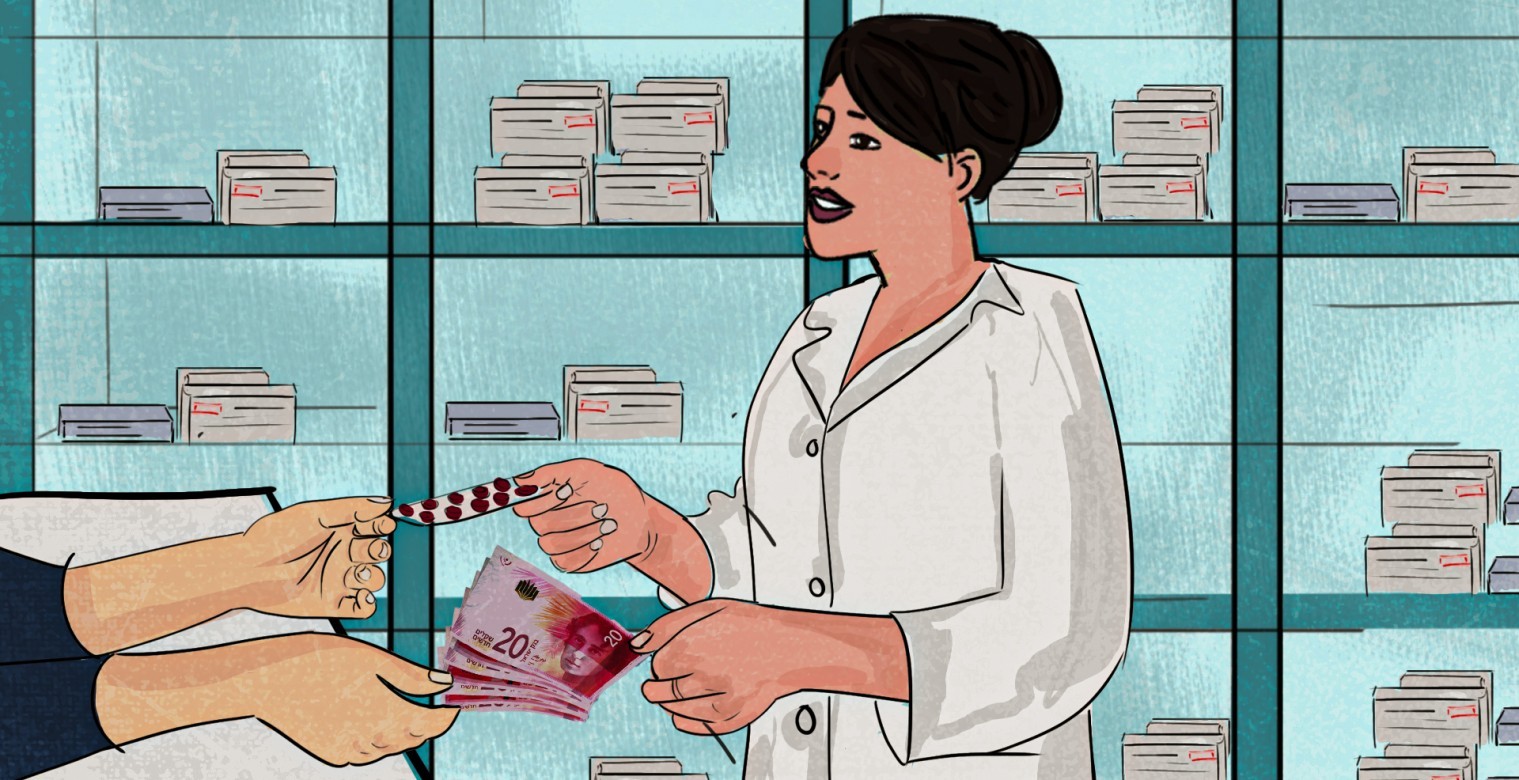Ahmed Saeed, (a pseudonym), frequents the pharmacy closest to his home every month to buy chronic medications for him and his wife, who suffers from diabetes and pressure, only to be shocked later that the bill for the same medicines he bought from another pharmacy is less than thirty shekels (10 dollars).
This was not the first time the man had noticed the price difference in medicines from one pharmacy to another, but he did not pay attention in the past.
Speaking to "Last Story", Ahmed (50 years old) described the rise in the price of medicines as 'catastrophic', considering that the medicines he used to buy are related to his family's chronic diseases and urgently need to be used constantly.
He pointed out that this rise in prices constitutes an exploitation of the conditions of people suffering from the crises of poverty and unemployment, in addition to the decline in the value of salaries and its reflection on the weakness of purchasing power.
Um Mohammed, 75 years old, told "Last Story": "I have been suffering from pressure and bone diseases and weak immunity for more than twenty years, and I need to buy my medicines monthly".
He added: "The high prices of medicines are increasing my burden, especially after the deduction of my husband's pension, a large part of which goes to support the family of my unemployed son, which often prompts me to order my medicines with travelers abroad, where prices outside the Gaza Strip are usually reasonably lower".
Regardless of whether the pharmacist reduced or raised the value of the drug, this contradicts what is stipulated in the Law of Practicing the Pharmacy Profession in Palestine.
This is in particular contradictory to Article (61), which prohibits a pharmacist from refraining, with the intention of monopoly, from dispensing any prescription or selling any ready-made pharmaceutical product if it is available to him, nor may he exceed or reduce the prescribed price.
On the other hand, pharmacist Hana Harara said that the process of determining the prices of medicines is carried out jointly by the pharmaceutical technical committee emanating from the Ministry of Health, the Pharmacists Syndicate, the customs police, the Consumer Protection Department, the Suppliers Union and the Federation of Pharmaceutical Industries.
However, Heat did not disclose the profit margin to which the drug pricing process is subject by the competent authorities, and what is the profit rate for each type of medicine. However, she went back and said: "Pharmacies do not abide by the price law adopted by the syndicate."
In her interview with "Last Story", pharmacist Harara attributed the reason for the fluctuation in prices to a set of reasons, foremost of which is the economic recession and the absence of the required control over the application of drug pricing laws, with the exception of some types of medicines whose prices are directly monitored by the Pharmacists Syndicate, such as narcotic drugs.
At the same time, the pharmacist said that there are types of expensive imported medicines, the price of which is determined by foreign companies exporting them, indicating that the profit margin in the circulation of medicines is small.
Harara explained that the crisis is exacerbated by the presence of several competing pharmacies in the same neighborhood, which pushes some of them to carry out speculation, make a discount for customers, and reduce the prices of certain medicines in order to stimulate the sales process and attract customers. "It is actually a behavior that harms other pharmacies that adhere to official prices for medicines," she said.
Although the internal regulations of the Palestinian Pharmacists Association, according to Article (33), prohibit pharmacists from discounting medicines, the disparity in the prices of medicines and the tricks of pharmacists' manipulation effects still exist without legal deterrence or effective control to control the prices of medicines in Gaza Strip.
In 2016, the Ministry of Health collaborated with the Ministry of Communications and Information Technology (MCIT) to launch the first version of "Dawaa" application on Android smart devices. This application allows citizens to inquire about the prices of medicines available within the pricing approved by the Ministry of Health, and their data is updated by the competent technical authorities in the Ministry of Health.
During an interview with the Director General of Pharmacy at the Ministry of Health in the Gaza Strip, Dr. Ashraf Abu Mahadi, he said: "As a government sector, we determine the prices of medicines in a thoughtful manner and oblige pharmaceutical companies to do that.
He added: "We determine the prices of medicines through a mathematical equation that takes into account the price of medicine for the citizen, the company and the pharmacy alike, and we do not allow any violations committed by pharmaceutical companies to change the specified drug price."
Abu Mahadi explained that with regard to monitoring pharmacies and preventing them from manipulating and speculating in prices and taking deterrent legal measures, this is the responsibility of the Pharmacists Syndicate, which is tasked with preventing patient exploitation and maintaining a stable quality and price for medicine.
From this standpoint, "Last Story" went to question the Pharmacists Syndicate about the role it plays in this regard, but after many attempts we were unable to get a response from the Syndicate.





